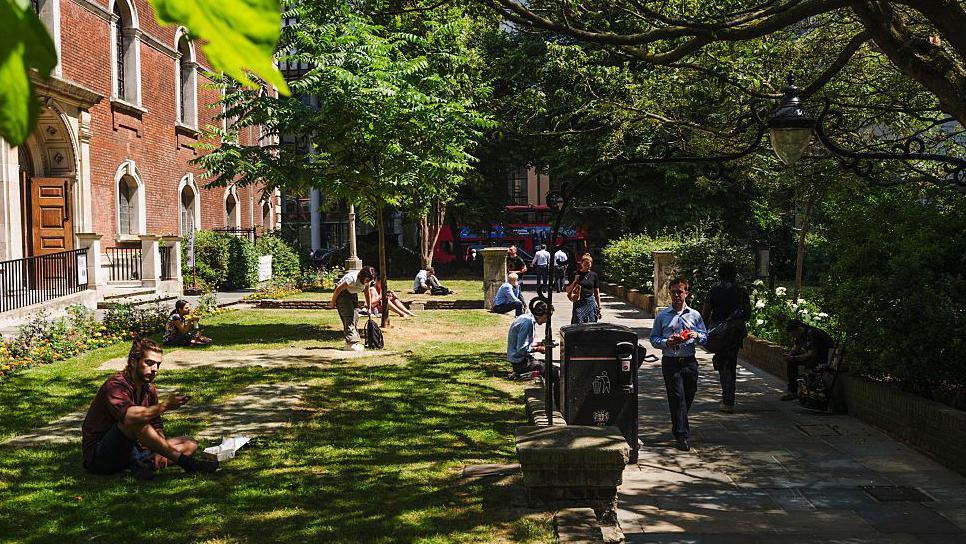The upcoming weekend is projected to showcase a significant heatwave in the UK, with temperatures expected to soar up to 34 degrees Celsius. This rising heat will mark the third time this year that temperatures have exceeded the official threshold for a heatwave, reflecting a growing trend in extreme weather. Simon King, the Lead Weather Presenter, along with Cachella Smith from BBC News, highlighted this forecast, stating that individuals can expect a sustained period of sweltering temperatures beginning this Friday.
The UK Health Security Agency (UKHSA) has already taken precautionary measures by extending yellow heat health alerts throughout England. These alerts are critical as they serve as a warning concerning the potential impact of the rising temperatures on health services, which may experience elevated demands leading to increased health risks. These alerts will remain active until 10:00 BST on July 15, 2025, emphasizing the seriousness with which authorities are responding to this weather phenomenon.
As the temperatures unfurl, the country is bracing for highs that could reach 34C on Friday and potentially on Saturday. The intensity of the heat is expected to continue into early next week, with the hottest areas likely located in Southern regions, including parts of the South Midlands, south-central England, and southeast England. Local forecasts expect temperatures to peak around 30-32C during Thursday, further intensifying come Friday and Saturday, particularly impacting regions like Scotland and Northern Ireland.
The Scottish Fire and Rescue Service has introduced an “extreme wildfire warning” due to the heatwave’s potential to induce dry conditions, heightening the risk of wildfires from Friday until Monday. In light of previous incidents where firefighters had to battle wildfires in warm periods, the public is advised to take necessary precautions, especially in outdoor activities.
The anticipated peak of this heatwave is projected to remain below the year’s highest temperature record of 35.8C, which was recorded on July 1st in Faversham, Kent. According to definitions provided by the Met Office, a heatwave is recognized when temperatures surpass specific thresholds over a continuous period for three days or more.
Moreover, the UK has seen dramatic fluctuations in temperature patterns more frequently than in past years. Notably, the rise to hotter conditions this season can be compellingly linked to the broader conversation around climate change. Reports suggest that the current projected temperatures could surpass the historical averages by an unsettling 7 to 10 degrees Celsius for this time of year.
Experts have noted that while isolated extreme weather events like these can be challenging to directly associate with climate change, the general consensus in the scientific community acknowledges that climate change is playing a role in elevating the intensity, frequency, and duration of heatwaves. Implications of these heatwaves extend beyond human comfort and health; they adversely impact the ecosystem, significantly altering wildlife behaviors and habitat conditions.
In discussing these shifts, Matt Jackson, head of conservation at the Bedfordshire, Cambridgeshire, and Northamptonshire Wildlife Trust, elaborated on the alterations in wildlife patterns. Many species, including butterflies crucial for bird feeding, are out of sync with essential biological cycles due to earlier seasonal changes. Jackson expressed concern over long-term ecological threats stemming from altered soil moisture levels affecting plant ecosystems, a development believed to pose the greatest risk to nature reserve management across the UK.
As temperatures cool later in the week and shift from intense heat to milder conditions, the prospect of a collective response to the pressing matter of climate and its impacts is necessitated. In particular, the introduction of effective conservation strategies and public awareness campaigns can assist in navigating these changes going forward, marking the continued conversation around climate adaptation and resilience. This weekend’s heatwave, while a testament to summer’s intensity, also serves as a striking reminder of the evolving climate narrative impacting the British Isles.











